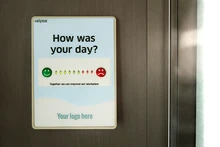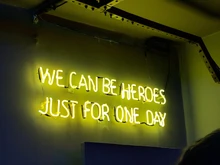
There was a time when we recognised that the pandemic threw up the largest ever global workspace experiment, we’d ever seen. But as new external forces now buffer our organisations, it seems to me that we are now locked in a polarised debate around what this time meant for ‘normality’ in the world of work. Both sides are making simplified claims about their own respective positions, backed up by datapoints from small samples. But I ask, are we able to come to a definitive conclusion yet or is our need for business certainty unhelpfully forcing our hand, causing us more problems than we currently need in the process?
Let’s look back first and consider this. For all its faults, and before being slowly consigned to the history books, the old working world template took a long time to evolve. From the artisan fields to the workspace, the social contract a fix for our inability to unbundle tasks, hard fought employee benefits, the 5 + 2 working week, the post-WW2 impact of hierarchy and the ever-growing use of automation, speeding up late on in the 20th century. We (typically men) gravitated to the office 5 days a week, remained in one company for life, got promoted, accepted the rituals to reflect that and played out retirement when the final buzzer rang. For over 40 years now this template has been proved utterly redundant as the complexity of markets prevailed, technology grew and the nature of how we work and organise fractured beyond the old command and control template.
On that continuum, the pandemic era exponentially sped up some key learning (mostly about what employees now value with their short time on earth). So now, ask yourself why anybody would believe we’ve arrived at some final post-COVID19 ‘new normal’, given the sheer length of time the last iteration evolved over.
Amidst the noise, appreciate the intrinsic biased motivations of both camps. Those over-emphasising the primacy of the office space as a panacea to finding productivity and profits are a broad church of big enterprise CEOs, Corporate Real Estate funds and those hard-pressed youngsters with poor home-based infrastructures. On the other side, the Remote romantics are distributed work companies, collaboration Tech vendors, digital nomads and many well-intentioned, HR exceptionalists who’ve pitched their tent on this side being more ‘Humane and People-centric’.
But ultimately, we’re still working our way through this stuff, with a variety of out workings in play. We should continue to adapt, rather than follow the herd. For example, those laudably advocating a 4-day week feels to me like the enforcement of a slightly lighter version of the 5 + 2 working time ritual and hardly ground-breaking. I watch it with interest, but still falls far short to me, especially as its remit still focuses on the core typical workforce demographic.
So, in working with a variety of clients leaning into this issue, I want to share four areas of focus that seemed to help :
- Understand that employee habits are fundamentally changing. Leaders must recognise that. For those in historic industrial systemic norms, where long working hours, hustle culture and Darwinian HR practices dominated that world, this has changed forever. Recent research from Qualtrics show that 36% of employees have “reduced their ambitions” and only 22% want to work harder. This data, coupled with the fact that only 57% of employees believe their pay reflects their performance, is a wake-up call for management strategies. No longer can managers expect people to put in extra hours: it must pay off for them. It’s pragmatic but also based on reality. As one meme puts it, “I’m going to act my wage.”
- Listen constantly to your people and always act on that. There is a new deal at work for our multi-generational employee base and we need to be more bespoke in this area. This indicates a new equation for employee engagement and productivity and in 2023, a consistent trend includes flexibility, support on real-life problems facing them in wellbeing, skills development and that age old focus on autonomy, empathy, and trust.
- the unproductive rituals & dial up what works. Any listening strategy is likely to throw up uncomfortable truths amongst today’s reality around interventions that create no value in the eyes of their people. For many of us that means, in the words of Marie Kondo, sometimes it’s ok to thank your old stuff and throw it away. This category is large and may cause distress to those leaders who value old thinking around command and control.
- Confront your own bias. Related to the above is a recognition that change is hard, and bias is strong in all of us, especially for leaders required to embrace new ideas that may run counter to their own long-held belief systems. At their worst, these can lead to blame and when we do that, we cannot work on the system that limits our potential as an enterprise. We need leaders to look at problem-solving objectively, we need to train our brains for objectivity and focus on a set of questions based on the external market issue of value creation.
‘Time is money’ they use to say, when shoulder pads were in vogue and Filofaxes ruled the world. Well, that was wrong. Our time is judged by more than that. It’s about meaning, purpose, community, belonging, mission, respect, personal growth, and lots more beside. For leaders, it’s about creating value through people, with these things in mind and for the organisation builders it’s about how we design smarter workspace, deploy clever Technology, and view positively the people in our business.
If this is one of the many issues you are grappling with in this era of uncertainty, why not consider hiring me on a fractional basis, gaining the unique advantage of a seasoned HR practitioner on a part-time or ad hoc basis, to help you develop an effective principle-led People & Talent strategy.
Find out more at www.barryflack.co.uk or get in touch directly via me@barryflack.co.uk for an initial conversation.












